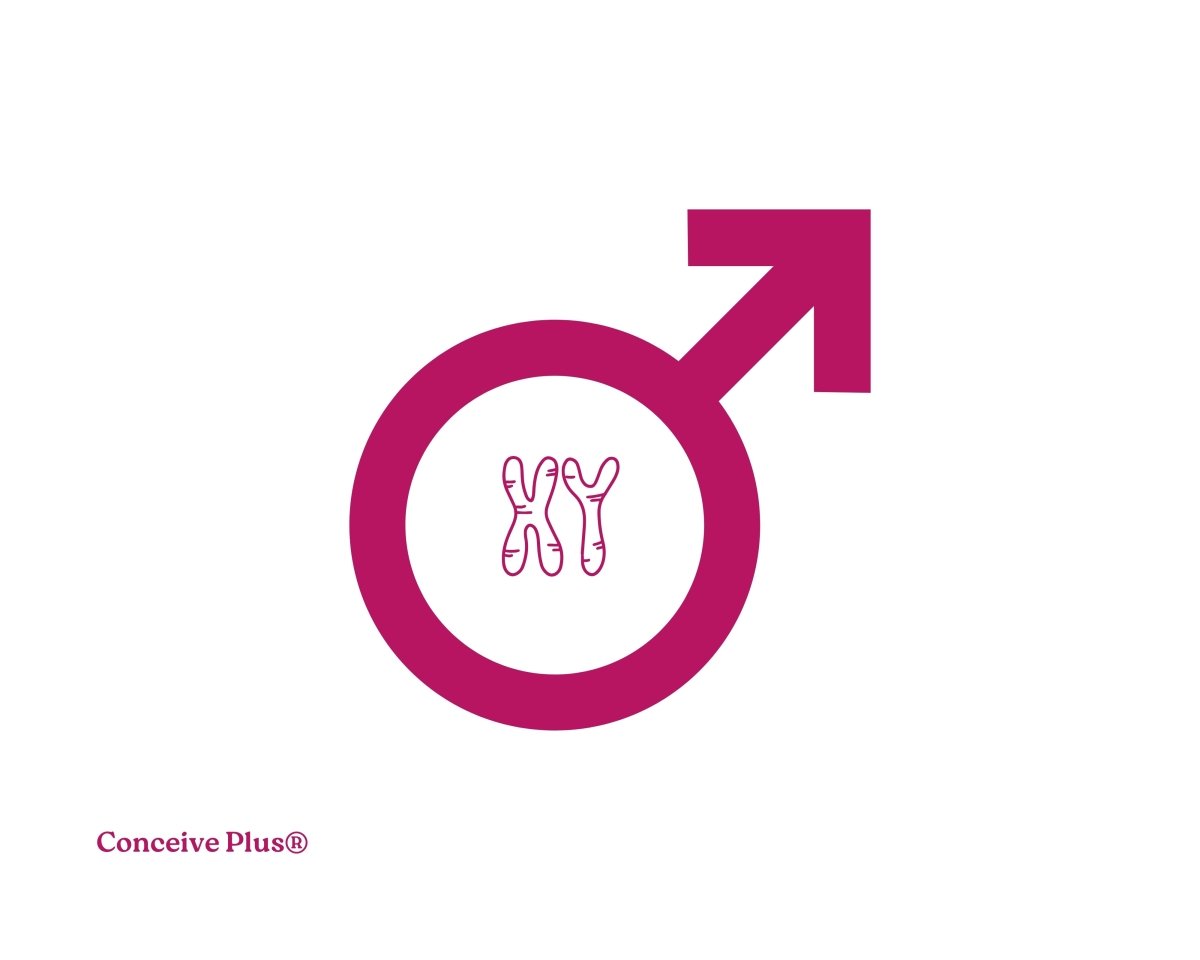What Is the Male Key Characteristics and Role in Reproduction?

Male is biological sex which is unique from female in terms of multiple features. They have different reproductive anatomy, hormones, and other physical traits compared to females [1]. If you're wondering, what is the male, it refers to a biological sex characterized by specific reproductive functions and physical traits, such as sperm production and testosterone-driven development.
Some people also ask, what is males, which generally refers to individuals of the male sex characterized by their role in reproduction and distinct physiological traits. Males produce small reproductive cells called sperm cells. These sperm contain genetic information about the male partner, and it transfers this genetic information to the egg during fertilization [2].
In this article, we will explore the role of the male gender in reproduction. We will also discuss the unique traits that make a male different from a female.
Unique Characteristics of a Men
Men are different from women in their physical traits and reproductive anatomy. Here is how:
Physical Features
The unique physical features in men result from the hormone testosterone at puberty [3]. The exceptional features include a deep voice, body and facial hair, bone mass, and broader shoulder muscles.
Men also have a larger muscle mass, which is something influenced directly by testosterone. You may also have noticed that males are generally taller on average compared to females, which is also a unique characteristic.
Testosterone and other hormones regulate all such physical traits of a man. This is why any hormonal imbalance can impact the development of unique physical male traits.
Reproductive Organs
Physical traits are not the only thing that distinguishes the two genders. The key difference between them is their reproductive anatomy.
The primary male reproductive organs are the testes, which produce sperm and testosterone [4]. Testes are cooler than the body temperature for efficient functioning. Other male reproductive organs include the penis, prostate gland, seminal vesicles, and vas deferens.
Penis is the outer male reproductive organ that gets an erection in response to sexual stimuli [5]. It is responsible for the release of sperm inside the female body during intercourse. The Vas deferens, a sperm-carrying tube, transports sperm from the testes to the penis for ejaculation.
Male Hormones and Their Role
Testosterone, luteinizing hormone (LH), and follicle-stimulating hormone (FSH) play a part in developing boy traits and reproductive functioning.
- Testosterone: Testosterone is the primary male sex hormone, and it plays a crucial role in the development of male characteristics [3]. It regulates sex drive (libido), sperm production, muscle mass, and even mood.
- LH and FSH: While LH and FSH secreted by the pituitary gland are well known for their role in the female menstrual cycle, these hormones also have a major role in men's reproduction. LH and FSH in males have role in sperm production and the functioning of the testes [6].
Men’s Role in Reproduction
Here is the role of male sex in fertilization and conception:
Sperm Production
Testes are the organs unique to men which produce sperm cells, commonly known as gametes, and spermatozoa. The sperm's role is to fertilize the female egg during reproduction. A male begins producing sperm during puberty, and sperm production continues throughout life, although it may decrease with age.
Fertilization Process
During sexual intercourse, semen — a fluid that contains sperm — is ejaculated from the male's penis into the female's reproductive system. If a male sperm successfully reaches and fertilizes a female egg, pregnancy occurs.
This process takes place in the fallopian tubes of the female body. The fertilized egg then travels down to the uterus, where it implants the uterus for the next 9 months.
What Men Fertility Depends On?
Male fertility depends on several key factors, including sperm count, sperm motility — the ability to move, and sperm shape. Healthy man sperm production requires balanced hormone levels, especially testosterone. The proper function of the reproductive organs is also vital for healthy sperm production.
Multiple lifestyle factors, including diet, exercise, stress levels, and avoiding unhealthy habits like smoking or excessive alcohol intake, are also a factor.
The Bottom Line
A male is a man or a boy who can be recognized by his physical characteristics, such as body hair, a deep voice, and muscle mass. Testosterone largely determines these unique characteristics. The question what is the male also relates to the biological and functional roles males play in reproduction, development, and heredity.
The male contributes to reproduction by producing sperm cells and delivering sperm cells inside the female body for fertilization. Different lifestyle habits can impact the ability of a male to conceive.
Resources Used
- Rich-Edwards, J. W., Kaiser, U. B., Chen, G. L., Manson, J. E., & Goldstein, J. M. (2018). Sex and Gender Differences Research Design for Basic, Clinical, and Population Studies: Essentials for Investigators. Endocrine Reviews, 39(4), 424-439. https://doi.org/10.1210/er.2017-00246
- Sperm: MedlinePlus Medical Encyclopedia Image. (n.d.). https://medlineplus.gov/ency/imagepages/19471.htm
- Nassar, G. N., & Leslie, S. W. (2023b, January 2). Physiology, Testosterone. StatPearls - NCBI Bookshelf. https://www.ncbi.nlm.nih.gov/books/NBK526128/
- O’Donnell, L., Stanton, P., & De Kretser, D. M. (2017b, January 11). Endocrinology of the Male Reproductive System and Spermatogenesis. Endotext - NCBI Bookshelf. https://www.ncbi.nlm.nih.gov/books/NBK279031/
- Panchatsharam, P. K., Durland, J., & Zito, P. M. (2023b, May 1). Physiology, Erection. StatPearls - NCBI Bookshelf. https://www.ncbi.nlm.nih.gov/books/NBK513278/
- Oduwole, O. O., Huhtaniemi, I. T., & Misrahi, M. (2021). The Roles of Luteinizing Hormone, Follicle-Stimulating Hormone and Testosterone in Spermatogenesis and Folliculogenesis Revisited. International Journal of Molecular Sciences, 22(23). https://doi.org/10.3390/ijms222312735













